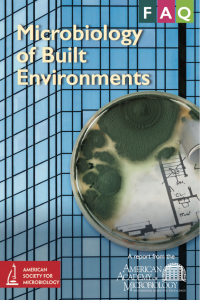Back in November, I posted about a superbug that emerged in China. The mcr-1 gene is known to be resistant to Colistin, a last resort antibiotic for superbug infections. Today, the first known case of the resistant strain of E. coli was reported here in the US (Pennsylvania). This is scary for many reasons and …
Over the last several years our lab has spent a fair bit of effort on collecting and sequencing genomes of bacteria from the built environment. Genome sequences are useful for a number of reasons including facilitating metagenomics and understanding the actual metabolic capacity of particular microbes. In particular we hope that genome sequences will facilitate …
Cool-sounding program fellow position at the Gordon and Betty Moore Foundation working on symbiosis. Text from the job posting below: Program Fellow, Science The Gordon and Betty Moore Foundation’s science program supports exceptional scientists, invests in new technologies, and brings together new scientific partnerships. We believe in the inherent value of science and the sense …
microBE.net is an awesome name, so I wasn’t that surprised to find that the CDC has it’s own MicrobeNet that they launched in 2013. MicrobeNet is a free online curated database of emerging bacteria and fungi that aims to improve reference diagnostics and pathogen identification. The database includes genetic sequence data (16S rRNA), biochemical data, morphological characteristics and antibiotic resistance profiles for about 2,400 species, as well …
About half the human population now lives in urban environments. In 2008, populations of more developed nations were about 74% urban, while about 44% of residents of less developed countries lived in urban areas. It is projected that 70% of the world population will be urban by 2050, with most urban growth occurring in less developed countries. While there …
Recent papers on microbes of the built environment. Microbes in the hospital Prevalence of Staphylococcus aureus from nares and hands on healthcare professionals in a Portuguese Hospital – Ana Castro – Journal of Applied Microbiology ($6 to rent, $38 to own) The main goal was to estimate the prevalence of methicillin-resistant S. aureus on hands and …
Hello everyone! I’d like to draw your attention to our just published year-long study focusing on little investigated topic titled: “Concentrations and sources of airborne particles in a neonatal intensive care unit”. The main outcomes of the study are the following: The contribution of outdoor particles to indoor particle mass concentrations was particularly low owing …
There will be a Twitter chat on Thursday of relevance. Thursday May 19 10-11 AM EST Run by @ASMicrobiology. Follow this hashtag #ASMChats Twitter chat Thu 10-11 AM EST run by @ASMicrobiology re: AAM report on Microbes & Built Environment https://t.co/UgzrheJcWM #ASMChats – Jonathan Eisen (@phylogenomics) May 17, 2016 //platform.twitter.com/widgets.js And an upcoming twitter …
There is a report out from the American Academy of Microbiology that is based on the “Microbiology of the Built Environment” colloquium they hosted in September 2015. The report summary is below: Built environments are the structures that humans create to shelter from the outdoors and provide spaces for living, working, playing, and getting places. …
Urban Metagenomics International Meeting Coming Soon! We are accepting abstracts and poster proposals for the 2016 MetaSUB Consortium Meeting (Metagenomics and Metadesign of Subways and Urban Biomes) until May 30. For details, please see our EventBrite Page here. The meeting takes place at Fudan University in Shanghai, China on July 1-2. Registration for the International …


